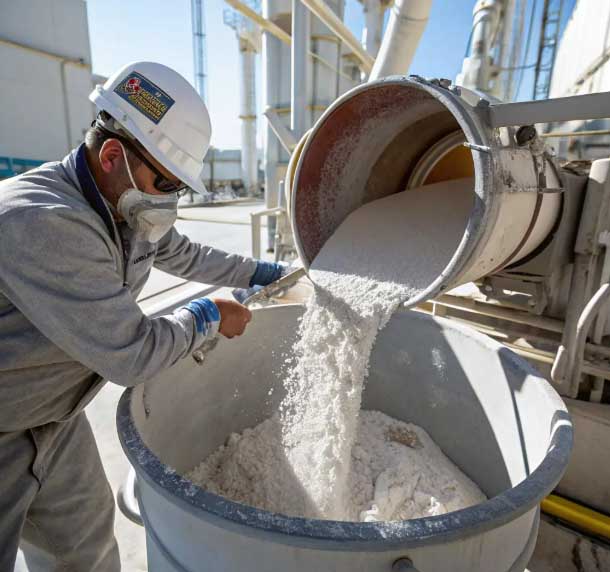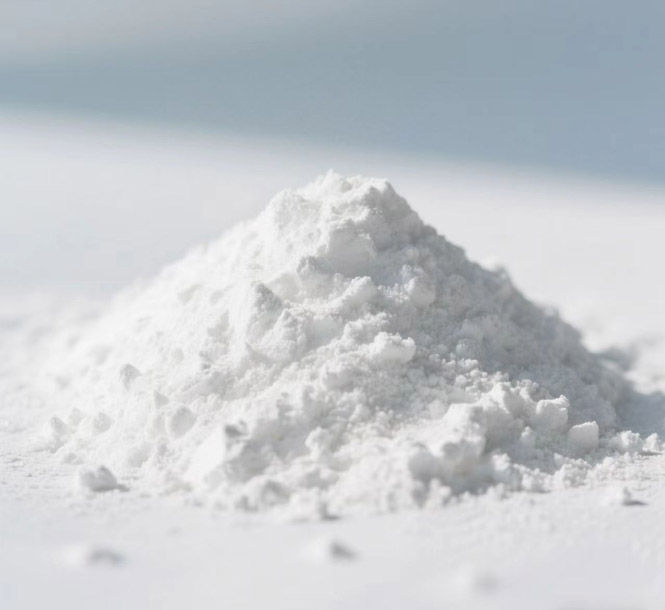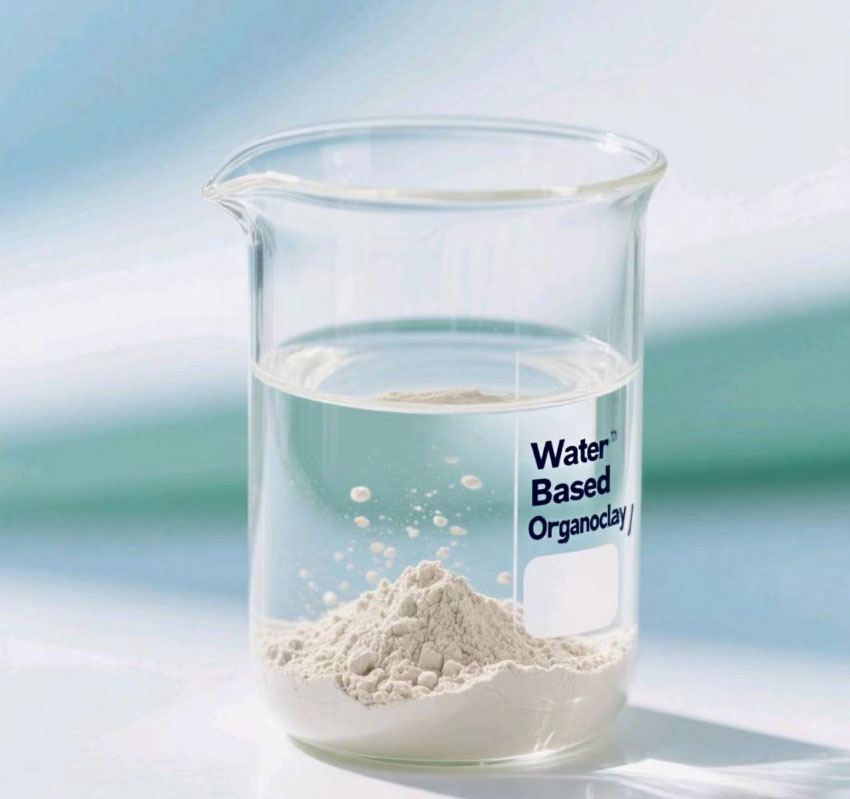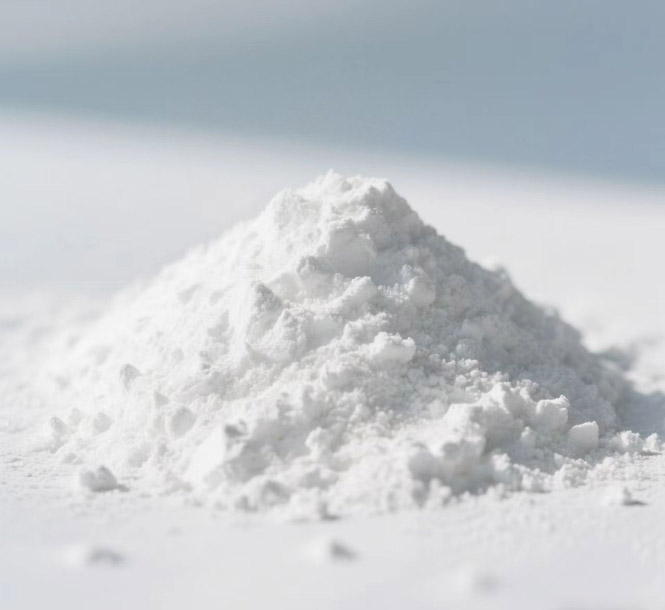Dry processed organophilic clay
In complex geological formations and under high-temperature, high-pressure conditions, selecting a stable and reliable organoclay bentonite is critical to ensuring drilling efficiency and cost control. We offer dry processed organophilic clay bentonite specifically designed for low-polarity diesel and mineral oil systems, featuring excellent dispersibility, suspension properties, and temperature stability, making it an ideal rheological additive for oilfield drilling mud.





Dry processed organophilic clay
Dry processed organophilic clay bentonite (Dry Process) is a product produced by mechanically high-shearing and coating bentonite particles with organic rheology modifiers. Compared to wet-processed organo bentonite products, the dry process offers superior storage stability and dispersion efficiency in oil-based systems.
Dry processed organophilic clay

organo clay for diesel-based mud CP-2
Organo bentonite can be used in gravure printing ink, screen printing ink, oil pen ink,

oilfield rheological additives CP-31
Organophilic clay is suitable for drilling fluids based on mineral oil, diesel oil, and synthetic oil.
Our Dry processed organophilic clay CP-2 can be used in oilfield drilling fluids and fracturing fluids. This organic bentonite is particularly convenient to operate and use. Dry processed organic clay bentonite does not require pre-gelation; it can be directly added to the drilling fluid and quickly dispersed, especially in deep-sea wells or remote drilling sites.
Eliminating the need for complex pre-treatment steps can significantly reduce labor and time costs.
Additionally, its pollution resistance is particularly outstanding, especially in drilling fluids containing saline water or high mineralization.
Unlike ordinary bentonite, which is easily eroded by salt, it maintains the viscosity and shear strength of the drilling fluid, preventing wellbore collapse and ensuring drilling safety.
Lubricity is another major advantage of organic bentonite clay. After addition, the lubricity of the drilling fluid is enhanced, reducing tool wear. In deepwater wells or horizontal wells, it can reduce torque and resistance, improving drilling efficiency.
One of the major advantages of using the dry method to process organoclay bentonite is that it can reduce costs. The dry processing method for organic bentonite eliminates the need for dehydration and drying steps typically required in wet processing, effectively controlling and reducing costs.
Additionally, it offers significant advantages in transportation and storage, as it does not form lumps, helping to control procurement and usage costs.
The product meets industry standards for oilfield chemicals and complies with environmental protection standards, posing no risk of contamination to the formation. It can meet the requirements for drilling and fracturing, meaning it offers core value advantages in terms of work efficiency, stability, and cost.
In certain fracturing fluid applications, dry-processed organic bentonite exhibits excellent high-temperature resistance, suspension properties, and sand-carrying capacity.
It also demonstrates strong compatibility with the entire system. In fracturing fluids, dry-processed organic clay bentonite rapidly forms a gel structure, effectively suspending and supporting quartz sand, ensuring uniform distribution of other additives within fractures, preventing sedimentation and blockage, and enhancing fracturing efficiency.
After dry processing, organobentonite maintains shear stability during high-temperature deep well fracturing, avoiding failure due to excessive temperatures.
This ensures consistent performance of the fracturing fluid during construction, meeting the pressure requirements of complex formations. Additionally,
Dry processed organophilic clay exhibits excellent compatibility with other additives such as guar gum. This compatibility enhances the stability of the entire formulation system, eliminating the need for additional additives. This high compatibility also helps control costs.
We sincerely welcome you to visit our factory and ask our salesman for product instructions and samples. Our samples are free. After your experiment, we will choose the model that best suits your formula.
Why must oilfield drilling use organic bentonite with matching polarity?
📌 Risks of mismatched polarity:
Thickening failure, causing drilling fluid sedimentation
Unstable gel structure, leading to wellbore collapse
Mud weight loss, affecting rock carrying capacity